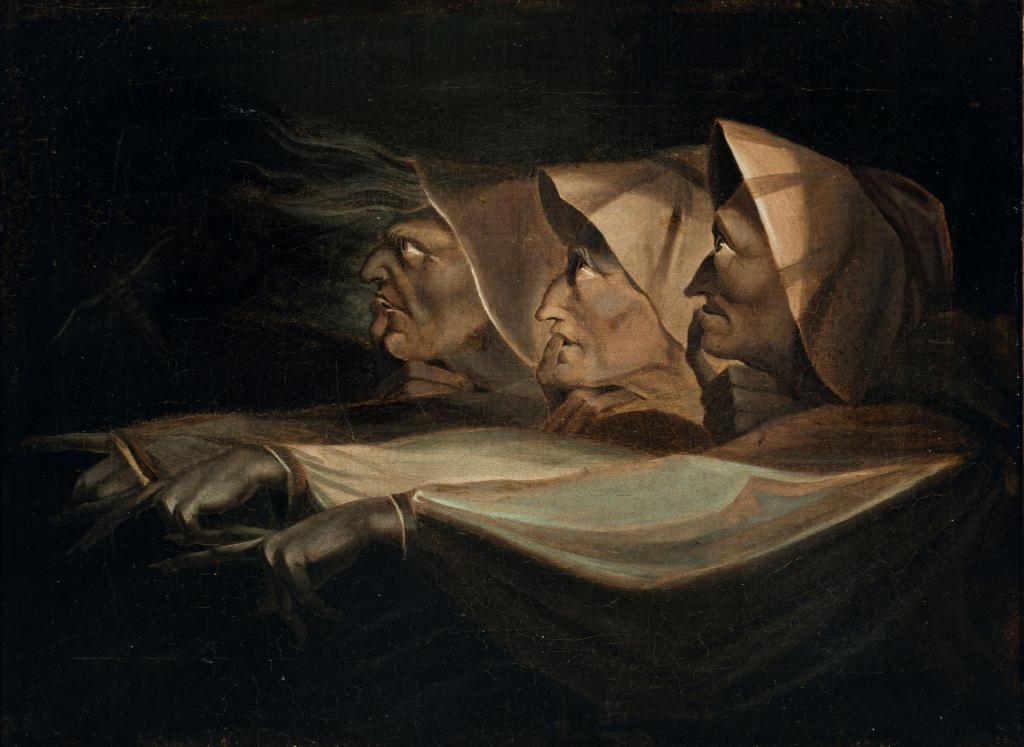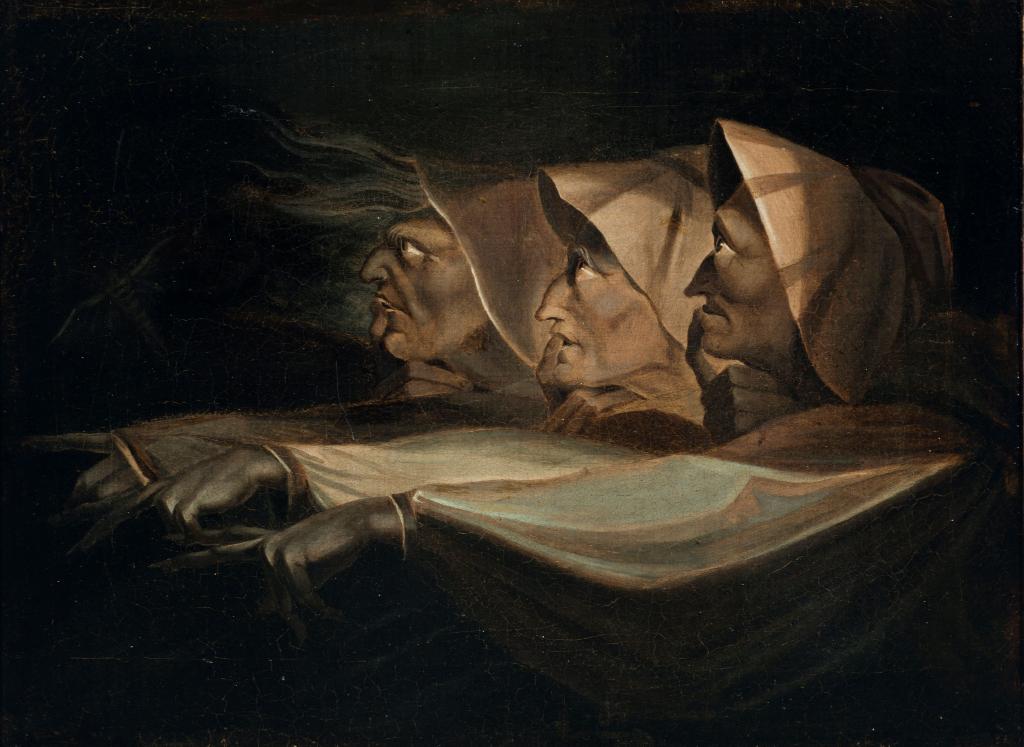
(Author’s Note: This is a revised version of a post that appeared in 2019. The author believes it is especially relevant today.)
The First Apparition (“an armed Head”) warned him to beware the Thane of Fife. The Second (“a bloody child”) prophesied that none of woman born could harm him. The Third Apparition (“a child crowned, with a tree in his hand”) counseled him to assume the mettle of a lion:
Take no care
Who chafes, who frets, or where conspirers are.
Macbeth shall never vanquished be, until
Great Birnam Wood to high Dunsinane Hill
Shall come against him. (4.1.89-93)
From then on, his purpose became firm and clear. He seized Macduff’s castle and the dominion of Fife. To ensure the end of Macduff’s issue, he resolved to kill “his wife, his babes and all unfortunate souls / That trace him in his line” (4.2.1-87).1
(more…)